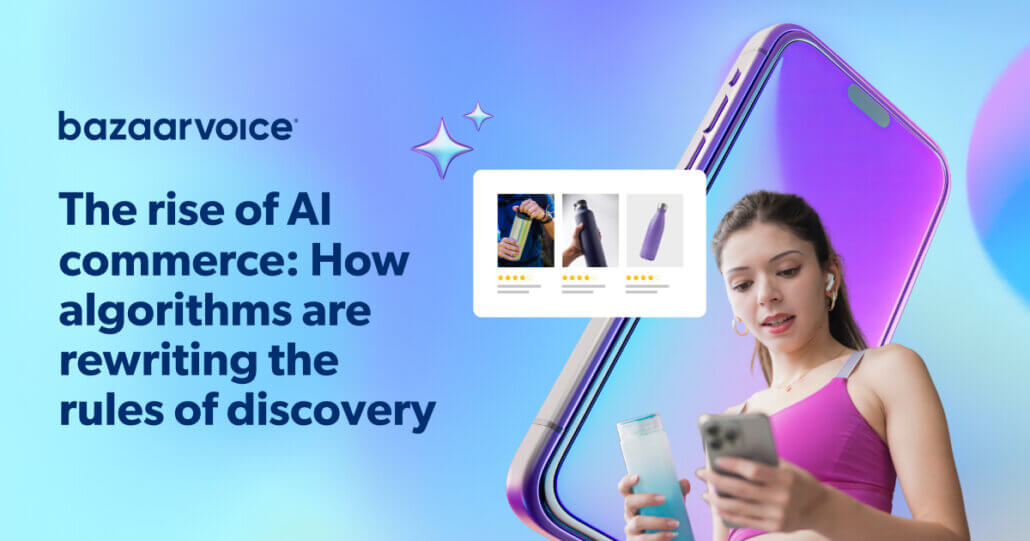April 12, 2025
Gen Z and Millennials are revolutionizing shopping and retail by transforming social platforms into dynamic shopping hubs where discovery, engagement, and purchase happen seamlessly. The numbers don’t lie: almost 80% of Gen Z and millennials now integrate social media into their shopping journey, with Gen Z and millennials leading the social commerce trends, according to the Bazaarvoice Shopper Preference Report 2025.
The survey, conducted across six countries, highlights how young shoppers are making direct purchases — whether it’s through TikTok’s hyper-personalized discovery, Instagram’s streamlined checkout, or creator-driven promotions. For a significant portion of shoppers, social commerce trends are leading them to navigate a multi-path purchase journey.
For nearly 8 in 10 consumers, social media plays a part in shopping journey
At least 79% of Gen Z and Millennial consumers integrate social media into their shopping journey, as per the report. Among the key social commerce trends observed among them is their tendency to discover products on social media and then branch out to multiple channels to make a purchase, highlighting social media’s power in driving young consumers to key brand touchpoints and, ultimately, to purchase.
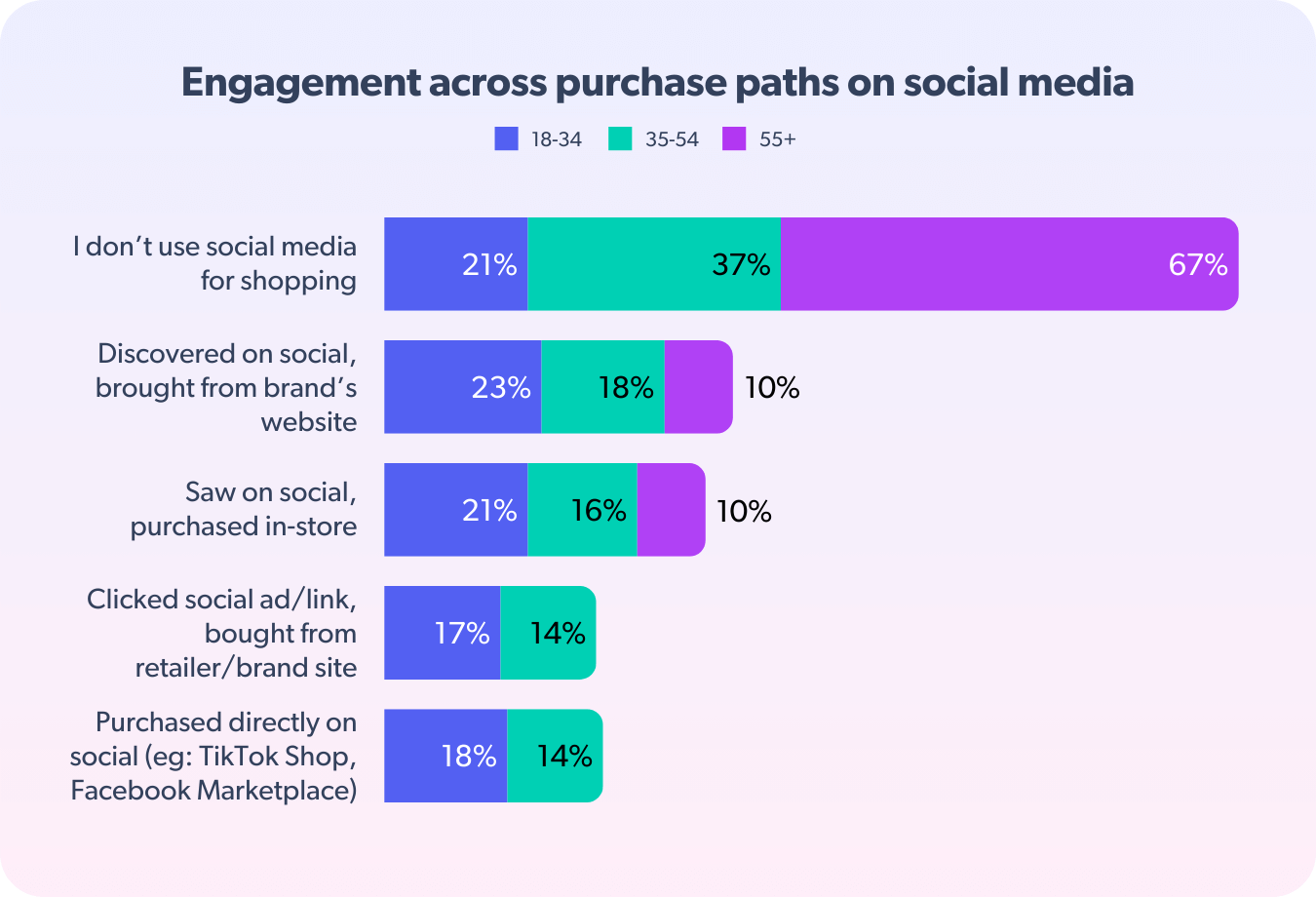
While older generations still rely on traditional e-commerce, younger consumers make social media their primary shopping hub. The data indicate that among the 18-34 age group, spending on social media has increased significantly compared to other demographics, with 38% increasing by 20% or more.
Notably, more than half of shoppers prefer Facebook for direct purchases, while Instagram and YouTube follow closely, solidifying Facebook as a dominant shopping hub.
Why younger shoppers prefer social commerce
1. Budget-conscious mindsets
Cost-saving remains a priority in shopper behavior, with 46% of social shoppers citing better discounts as a top reason for purchasing through social platforms. It is followed by curiosity to learn more about products and services, participation in contests, and other factors.
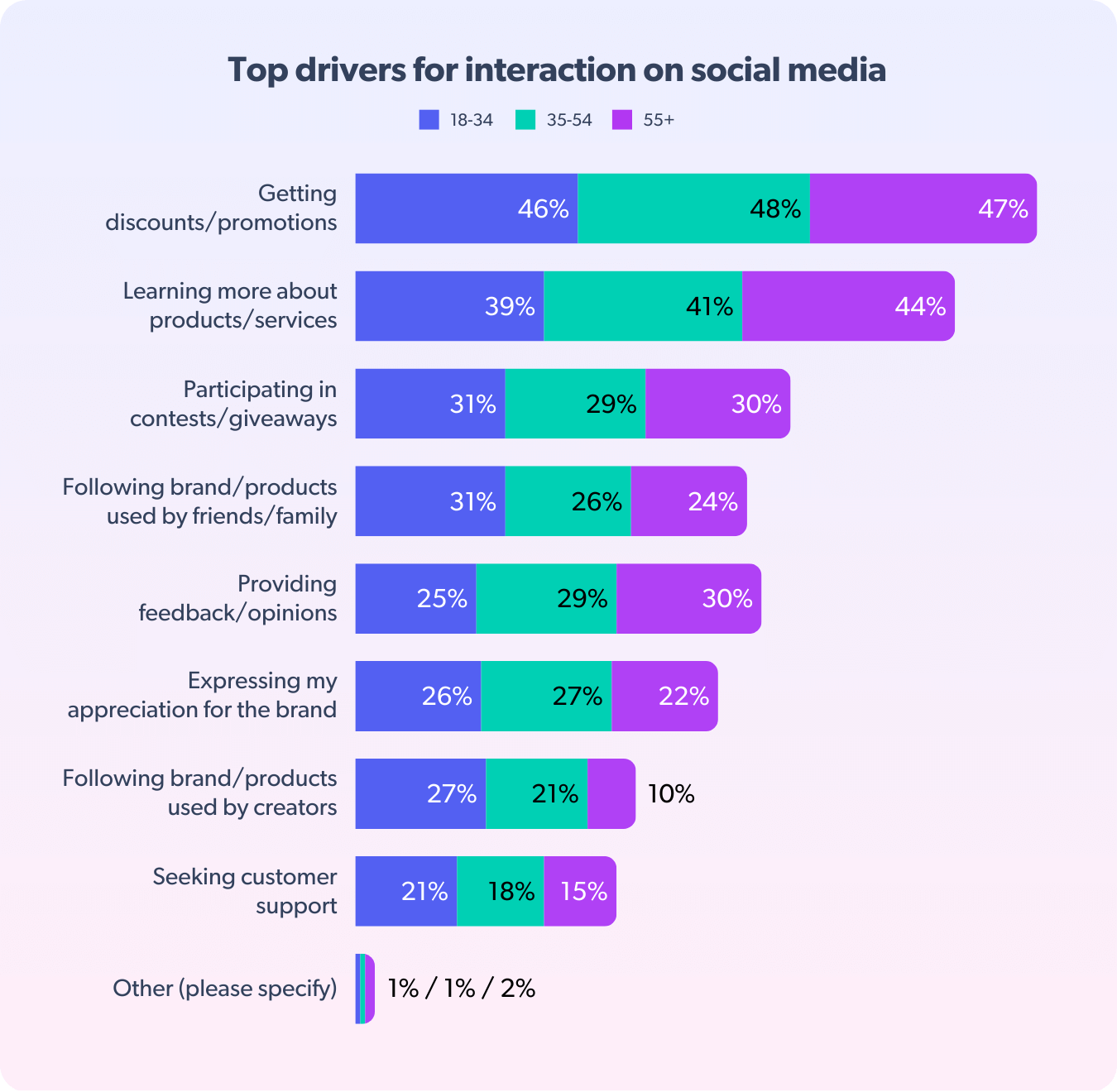
2. Creators = Trusted advisors
When asked about having purchased a product based on a creator’s recommendation, nearly 56% of Gen Z and Millennials confirmed. It shows content creators are driving the social commerce trends to an extent. Interestingly, Health and beauty (53%) and apparel (41%) are the top product categories where creator influence plays the biggest role in getting Gen Z and Millennials’ attention.
If you are wondering about the frequency of purchases, around 42% of Gen Z and younger Millennial shoppers made 3-5 purchases in the last six months, reflecting young shoppers’ trust in content creators.
A prime example of the creator’s role in shaping social commerce trends is the Stanley tumblers, which went viral in 2024. Initially promoted by content creators on TikTok, the tumbler quickly gained traction as their followers— and eventually everyday shoppers — began using and posting about it. Under the hashtag #TikTokMadeMeBuyIt, users shared their genuine love for the brand, making it popular and turning it into a part of their identity.
Interestingly, young shoppers don’t buy a product unquestioningly based on the creator’s recommendation. They scrutinize by researching until they feel confident, seeking out multiple reviewers when uncertain, emphasizing the critical role of credible content in their purchase journey.
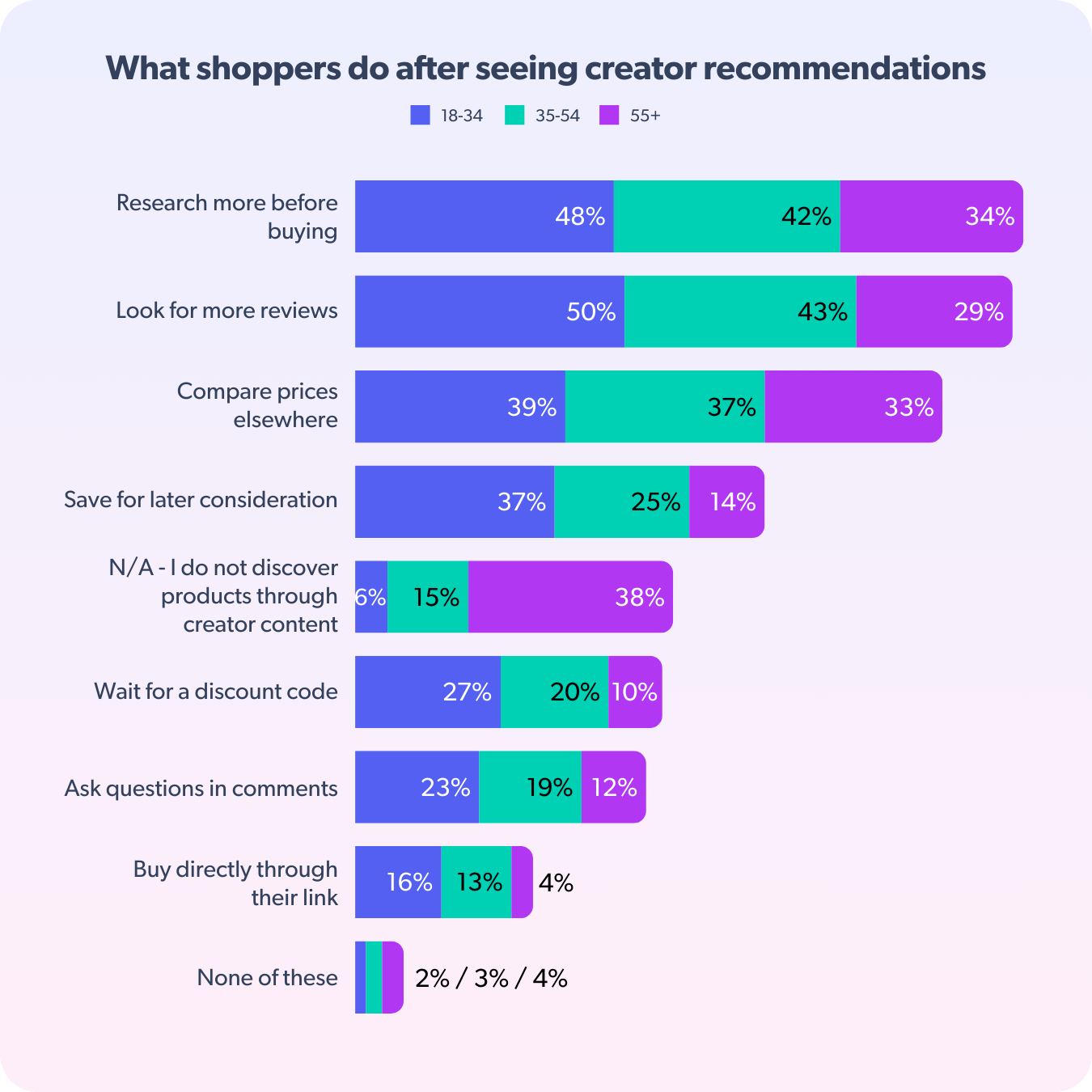
3. No substitute for short-form video
Under the social commerce trends, Nearly 46% of shoppers find short-form videos (like TikTok, Reels, and YouTube Shorts) the most influential format for purchasing decisions. Unlike older shoppers (55+), who prefer customer testimonials (49%) and product demos (42%) when considering a purchase on social media, younger consumers crave bold, peer-fuelled visuals. Short videos with product unboxing (30%) and before-and-after results (36%) influenced them to consider a purchase over the past year.
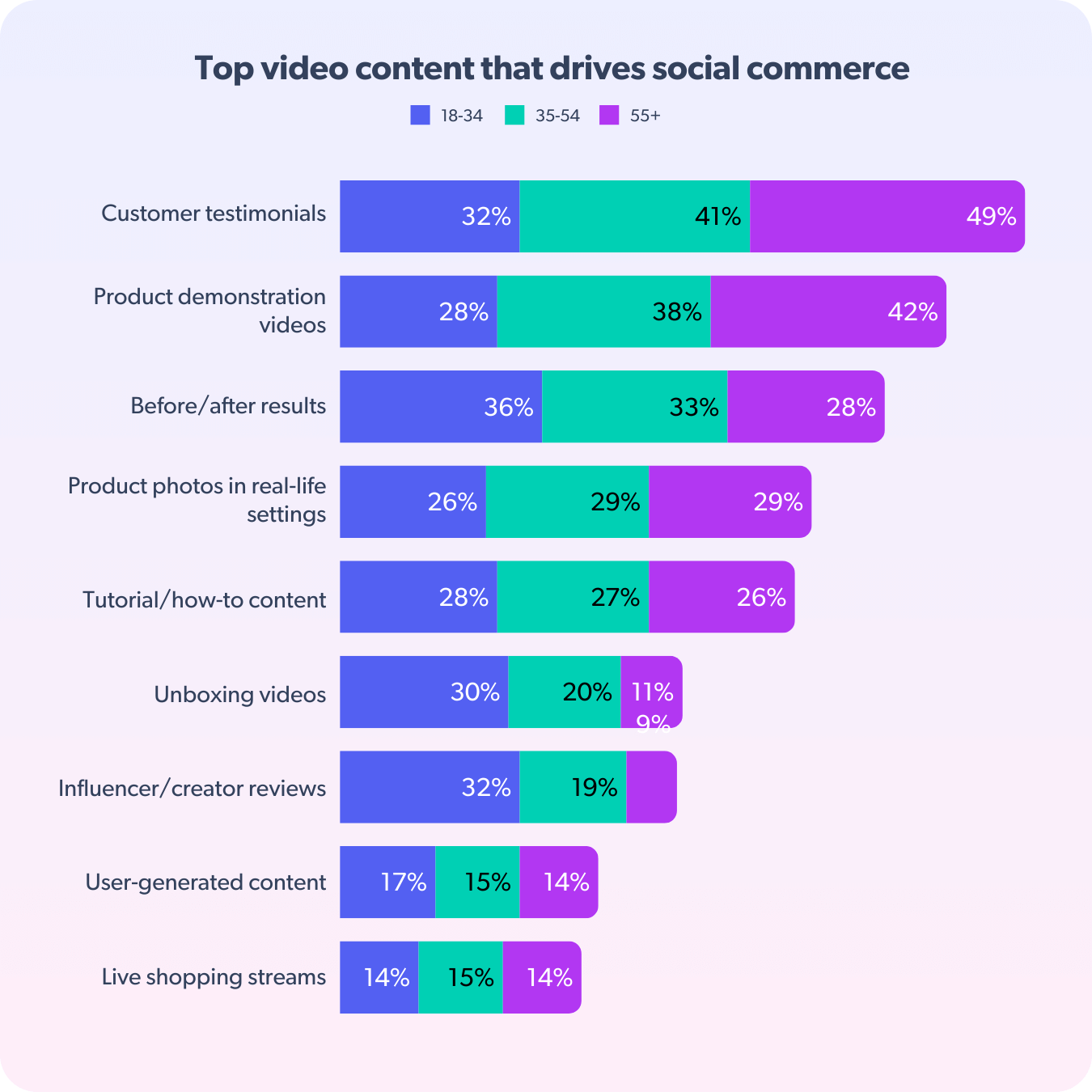
4. Power of authentic reviews in shaping social commerce trends
Young shoppers are equally receptive to customer reviews and ratings. They prefer high review volume, photos and videos, and reviews or testimonials from users with certified profiles. Written reviews that include photos, detailed experiences and clear pros and cons are especially valued.
A negative review, however, does not deter them from considering a purchase. They continue researching until they feel confident, seeking out different reviewers and visiting the brand’s website directly for added authenticity.
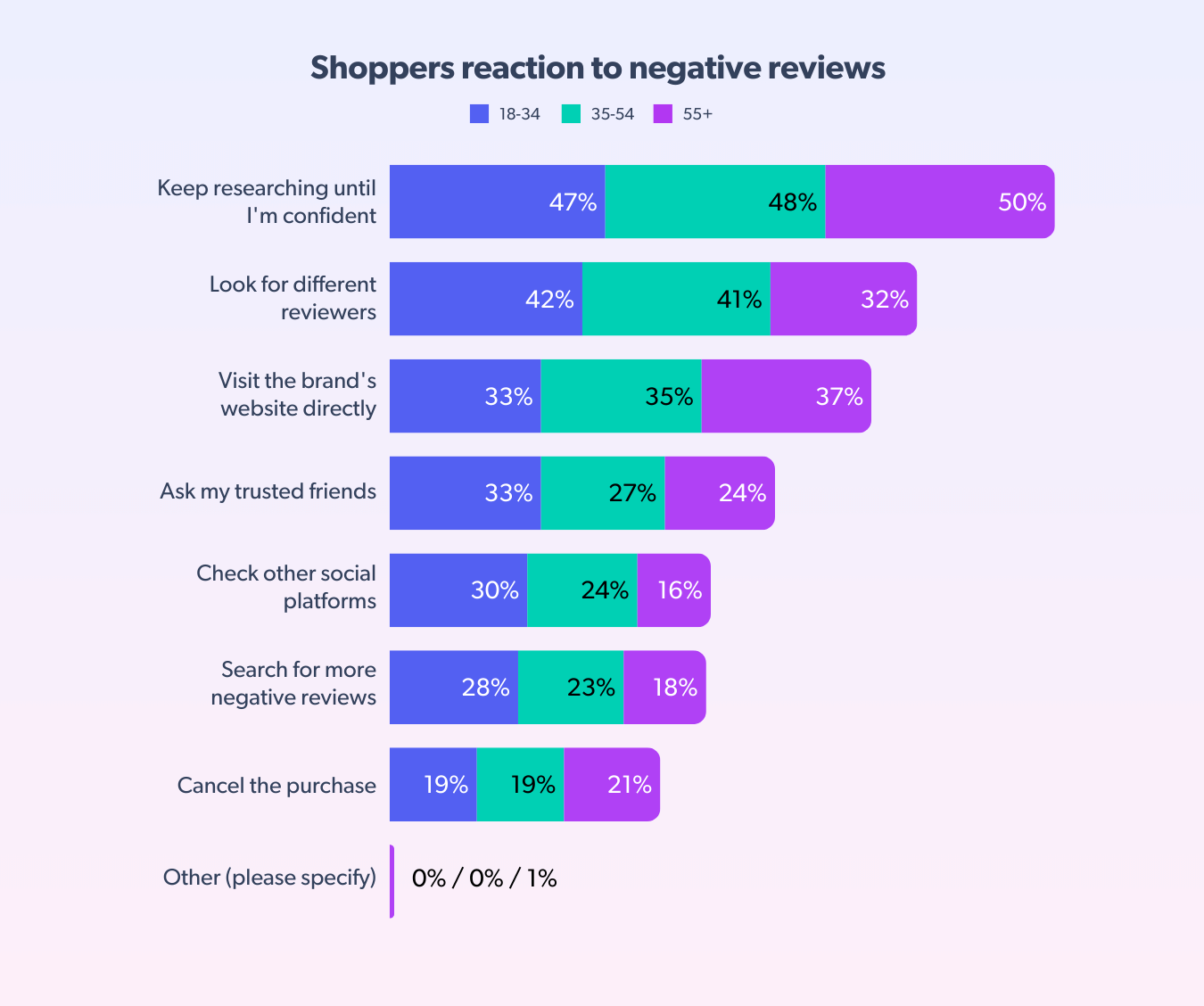
Experiential shopping heralding the new era of commerce
Beyond social commerce trends, Gen Z and millennials look for interactive, experiential shopping that combines the convenience of digital with real-world engagement. For them, shopping is more than about choosing and buying the product. It’s about engaging with a brand in a personal, immersive, and fun way.
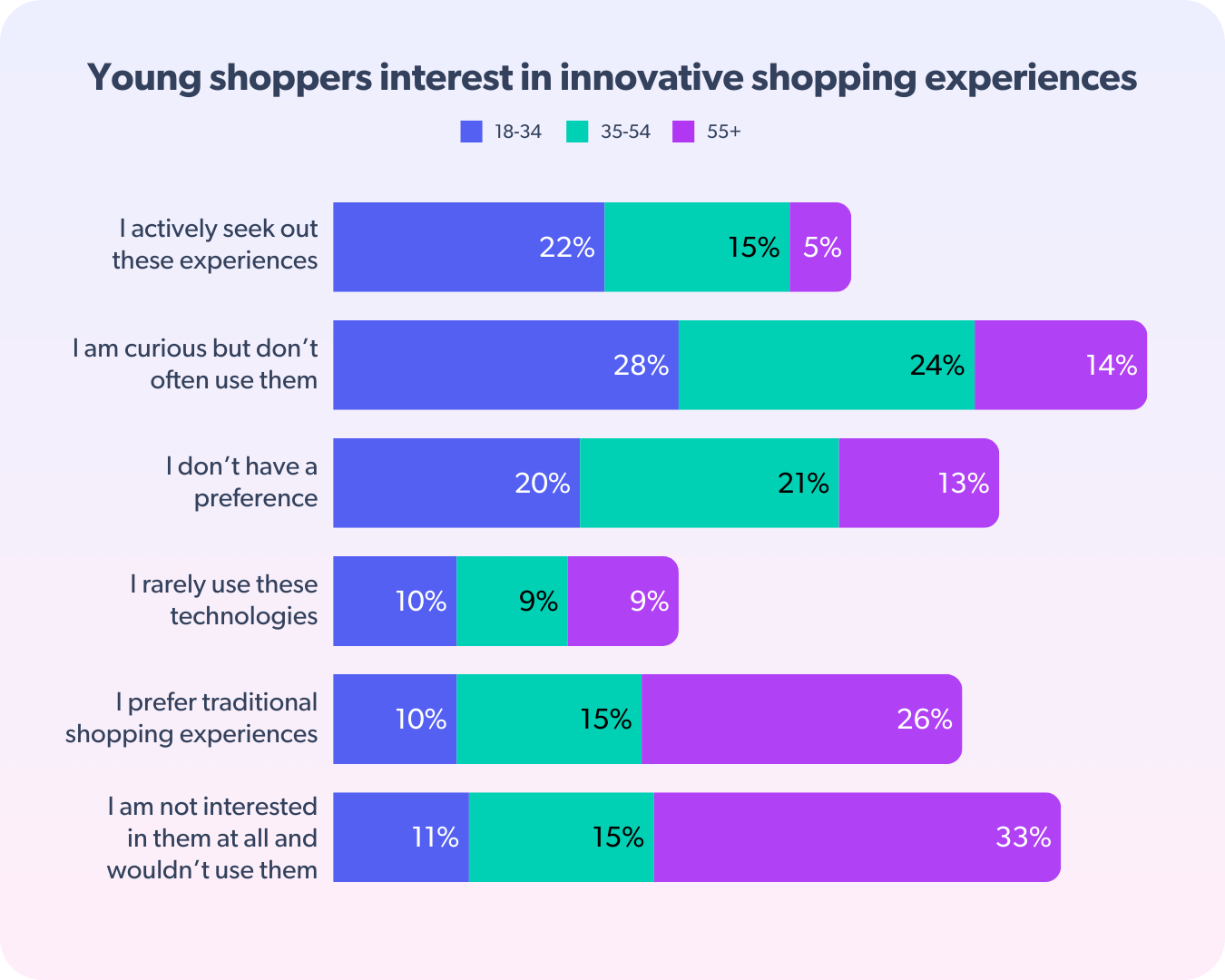
1. Augmented reality, virtual try-ons and contactless shopping gain momentum
While AR shopping experiences are still in their early adoption stages, 50% of 18-34-year-olds actively use and are curious about AR/VR shopping. Whether trying on makeup via Snapchat filters or virtually placing furniture in a living room, younger consumers embrace this digital-first shopping experience. Older generations? Not so much, with 33% of baby boomers stating that they are uninterested in these technologies.
If we examined the Gen Z shoppers’ behavior closely, we would find that they value convenience and seamless experiences above all. So it’s no surprise that 34% have embraced contactless shopping.
2. Pop-up shopping is here to stay
Gen Z shoppers are also drawn to pop-up stores and exclusive shopping events to engage with brands in a more immersive, in-person setting. These pop-ups, especially when clubbed with social media activations, create the ideal hybrid of online and offline shopping.
3. Livestream shopping and interactive content drive engagement
With evolving shopper behavior, the days of static e-commerce pages have been left behind. Livestream shopping events are becoming a major attraction for Gen Z and millennials, blending entertainment with commerce. Although only 12% of consumers have participated in a livestream shopping event so far, the number is set to grow as platforms like TikTok, YouTube, and Instagram refine their features.
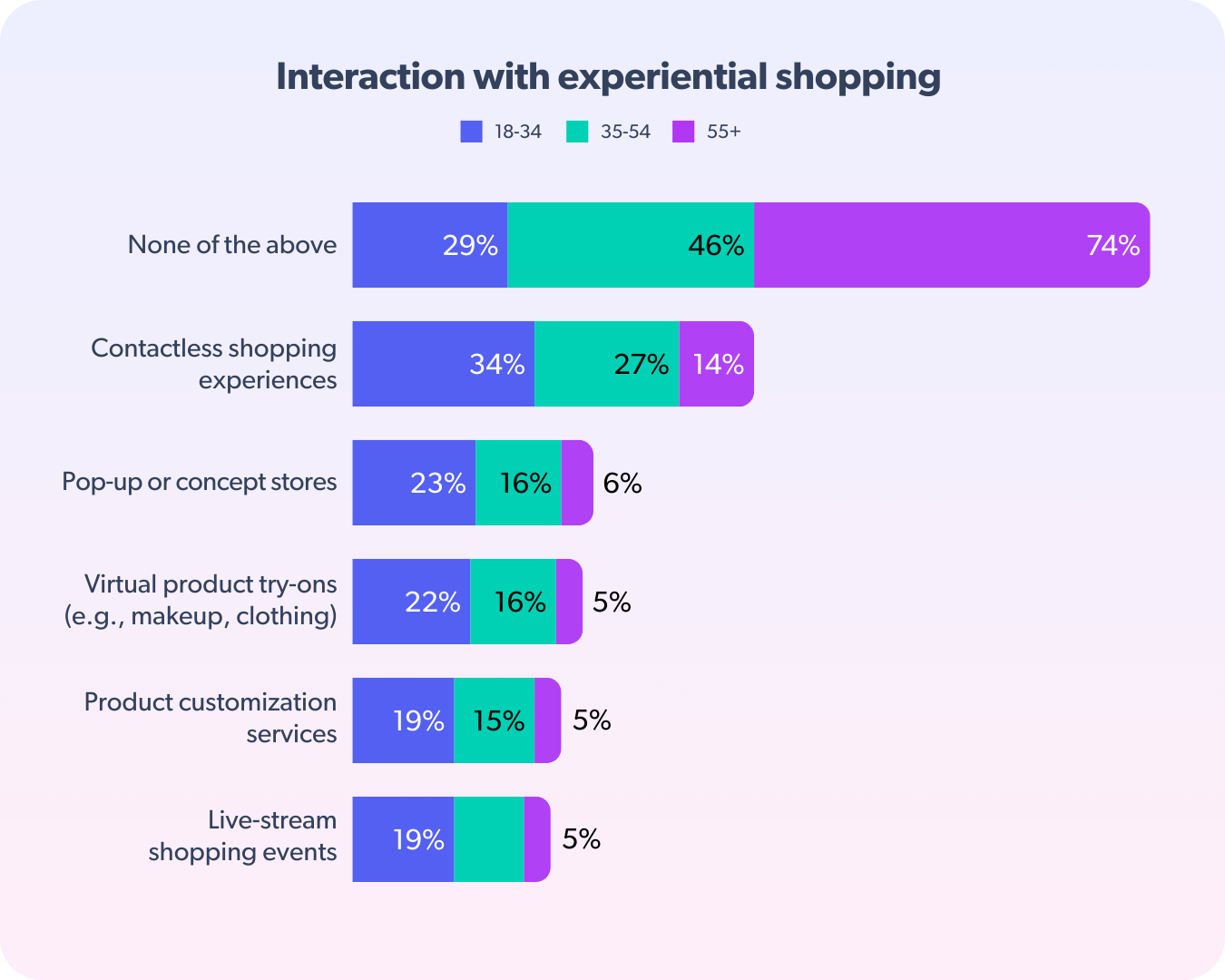
What these shifts indicate to brands
If your brand isn’t optimizing for social commerce trends and interactive shopping, you’re not doing enough to ride the waves of change. Younger consumers can’t just be termed digital-first; they’re often digital-only when it comes to discovering, engaging with, and purchasing products.
Here’s what brands can do to adapt:
Invest in creator partnerships
Make them authentic because 43% of shoppers trust creators who share both pros and cons, proving that transparency is more effective than overly positive, sales-driven content.
Prioritize short-form video
The dominance of TikTok, Instagram Reels, and YouTube Shorts means that video content should be at the core of your strategy. Product demos, before-and-after transformations, and testimonials perform best.
Enhance social shopping features
Ensure your brand has shoppable posts, seamless checkout options, and platform-specific promotions. Exclusive deals drive nearly 50% of social commerce purchases.
Embrace experiential retail
Whether it’s integrating AR try-ons, launching limited-time pop-ups, or hosting livestream events, brands that make shopping fun and immersive will win the loyalty of younger generations.
For even deeper insights into evolving shopper behavior, download our full Shopper Preference 2025 report and discover what has been shaping social commerce trends.



